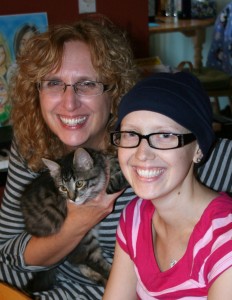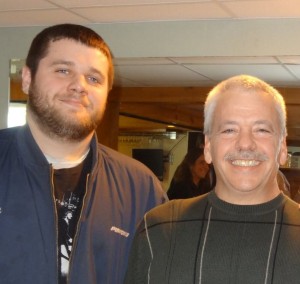I wonder who ever thought it would be a good idea to borrow the discoveries of Elisabeth Kubler-Ross regarding how people react to their own impending death and apply these principles generally to the experience of grief. It certainly was not her intention. In the Foreword to the 40th Anniversary Edition of Kubler-Ross’ On Death and Dying, Dr. Allan Kellehear states, the book “…was never a study of grief and bereavement. It was a discussion of some key emotional reactions to the experience of the dying. Yes, grief was a part of that experience, but it was not the totality of the experience.” And yet somewhere along the way it became commonplace to refer to Denial, Anger, Bargaining, Depression and Acceptance as The Five Stages of Grief, thus putting undo pressure (in my opinion) on the bereaved to grieve not only correctly but in order. It is not to say that these characteristics are never a part of someone’s grieving process, but as someone who has had my fair share of grief and loss, my own experience has taught me it is complex, unpredictable, and unique to each person’s experience. In fact I believe grief has a life of its own.
Until a few years ago I suppose you could say I had a casual relationship with grief. I had said good-bye to grandparents, aunts, uncles, cousins, parents and even a friend who took his own life. But in 2012 I entered into a new, very intimate relationship with grief due to the death of my eighteen-year-old daughter Claire to cancer. This grief was all consuming because a part of me died on March 1 at 3:06 a.m. along with my daughter. To this day I cannot take a breath without a stab of pain knowing there is a hole in my heart that will never be filled in the same way. After almost two years I was just beginning to feel like life was worth living again. I could see possibilities of a future that included moments of enjoyment and happiness as my boyfriend Dan and I purchased a new home together and began settling into our neighborhood and I eased back into working. But then our world was suddenly turned upside down…again. Dan’s twenty-three-year-old son Ben died unexpectedly. How could this be? I thought lightening didn’t strike twice in the same spot. Unknowingly we had assumed since we had already turned in our “death of a child” card we wouldn’t have to repeat that horrific event, but I guess we were wrong. And so now we know the difference between watching your child die slowly and being blindsided with the news that your child is on life support and will never recover. And the difference between these two experiences is ultimately that there is no difference – they both suck! And now we both know the experience of having lost a child who was our own flesh and blood and losing a step-child. Painful knowledge that I would be content to live without. Dan told me shortly after Ben died that after Claire’s death he thought he sort of had a clue, but realized he didn’t. Until it happened to him. I told him I was so sorry that now he knew.
Even though I am being critical of putting grief into the box of stages, I do understand our need to be able to conceptualize the intangible and explain the inexplicable when it comes to grief. I have come up with my own way to describe facets of one’s grief experience based on my personal relationship with grief as well as what I have observed in others. And maybe if I am lucky enough, someday someone will borrow my ideas and misapply them just as they have done with those of Kubler-Ross. However, instead of categorizing into stages I have identified three aspects of grief which do not follow any specific pattern, can happen simultaneously or not, are not linear and yet maybe they are, and are fluid and ever changing and evolving. The words I have chosen to express these facets are: Reeling, Realizing and Recovering.
Reeling is that feeling of being hit by an emotional tornado, hurricane and/or tsunami. It is hard to breathe, your head is spinning and everything is a blur. This time is also characterized by complete and utter exhaustion. You go through the motions of living without really wanting to be alive. You are in a state of shock and everything feels surreal. You have to remind yourself of what has actually happened because it all feels like a bad dream. Waking up in the morning is especially painful because you must face the horrible reality of your devastating loss.
My response to the Reeling phase has been exemplified by spending lots of time on the couch escaping into reality television, sleeping for 10-12 hours a night and crying a lot. I have also been known to self-medicate (which I certainly do not recommend), but numbing the pain became a priority to me during this time. And fortunately I had wonderful friends who would come over and make me go with them for a walk to get me out or would bring me food or Kleenex without me having to ask. Also very important to me during this phase (and possibly all of them) is finding ways to honor my loved one and keep their memory alive. My daughter died a couple months short of her high school graduation. As painful as it was, our family attended the ceremony in her stead and cheered through tears when they called her name. Ironically, Dan’s son also died before his college graduation, so once again we attended another graduation ceremony for a child who had died.
Realizing is when the shock and numbness begins to wear off and it turns into devastating sadness, anger and rage. This is the time when you have to re-live the loss all over again but on an emotional level which can be exhausting. This is also a time when you learn to live a dual life. Behind closed doors depression, grief, sadness and anger are the norm but you go through the motions and pretend to live life on the outside, trying to act “normal.” By this time there is usually a cultural expectation that enough time has passed and you should be “over it” even though in reality that is ridiculous. Relationships change and become redefined during this time. You learn who you can trust with your grief and gravitate toward them. Sometimes people leave you because they can’t handle it and sometimes you have to distance yourself from others because of their unsolicited advice and judgments.
I found myself seeking out emotional support when I began Realizing. I connected with other bereaved parents online and in face to face support groups. I was also drawn specifically to parents who had lost a child to pediatric cancer. It was comforting to know others had faced similar circumstances and had survived.
Recovering is the ongoing process of healing and learning how to live with the constant companion of grief. Energy begins to return. Some days are up and some days are down, but the down days become fewer and farther apart. The ache of grief becomes familiar and you are able to embrace it without feeling devastated. From the outside looking in things look “normal” – you go to work, engage with others, laugh, have fun, complain about trivial matters like everyone else. In contrast to being dragged by others when Reeling and faking it when Realizing, Recovering is self-driven and genuine.
One of the most profound and healing discoveries for me during this time was learning how to continue my relationship with Claire in a different way. Death does not end a relationship, it just changes it. Obviously if it were up to me I would prefer to have my daughter back in the physical realm, healthy and happy. But I honestly believe my relationship with her has grown in ways it could not have if she were still alive. Another part of my ongoing healing has come through being able to give back by volunteering for Momcology (http://www.momcology.org/), a unique support community for mothers and primary caregivers of children with childhood cancer, especially working with the bereaved moms. I am also thankful that my life experiences with grief and loss have enhanced my work as a therapist. I have learned to become comfortable sitting with pain and after enduring the loss of a child there is not much left that intimidates or frightens me. I am aware, however, of my continuing need for self-care in light of possible triggers when faced with my clients’ reports of their own grief and loss and trauma. But at the same time I am honored to be entrusted with hearing their sacred stories which continually remind me of the shared human experience and that I am not alone in my suffering.
This morning as Dan and I were eating breakfast I looked across the table at the love of my life and my heart broke again when I saw the expression on his face. Complete and utter devastation and sadness. He is coming up on the one year anniversary of his son’s death and has just started a new job. Even though in the moment I was in a place of contentment and being okay with my life, I was reminded of how quickly that can change when you carry the burden of grief. I knew there was nothing I could say or do to make him feel better but I also knew from experience he would not stay in that place forever. I was also reminded of how as bereaved parents every stress we face, like starting a new job, is magnified because of our grief. Anxiety, panic attacks and flashbacks are commonplace and sometimes it is impossible to untangle the complexity of our emotions; whether they are a “normal” reaction to stress or if they are grief induced or if they are a combination of both. This is how we must learn to live our lives. I believe it is best to honor our grief, allow it to make its appearance when necessary and enjoy the moments when we feel its oppression on a smaller scale. And by the end of the day maybe Dan will come home happy and I will be back on the couch because that’s just how grief is – it’s stageless.
References
On Death and Dying – Elisabeth Kübler-Ross Foundation. (n.d.). Retrieved January 12, 2015, from http://www.ekrfoundation.org/five-stages-of-grief/
The 5 Stages of Loss and Grief. (n.d.). Retrieved January 12, 2015, from http://psychcentral.com/lib/the-5-stages-of-loss-and-grief
Stage of Grief Models: Kubler-Ross – Grief & Bereavement Issues. (n.d.). Retrieved January 12, 2015, from http://www.amhc.org/58-grief-bereavement-issues/article/8444-stage-of-grief-models-kubler-ross


Thank you for the gift of your writings.
LikeLiked by 1 person
You are amazing. What eloquent writing and such an insightful read! I learn from you every time you post. Thank you for sharing your life and the continued memories of those who have gone before us.
LikeLiked by 1 person
So glad you are continuing your writing.
LikeLiked by 1 person
I think you hit the nail head. I never really thought about how my grief exemplified my stressful situations. I didn’t really link the two together but I certainly agree they are tied. Thank you for sharing!
LikeLike
This is beautifully written. A real glimpse into the pain the two of you have endured. My heart goes out to you guys.
LikeLike